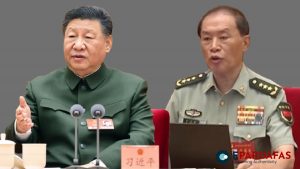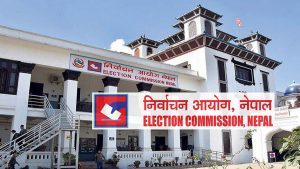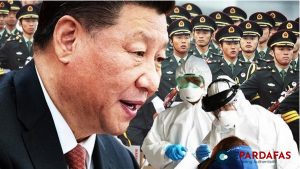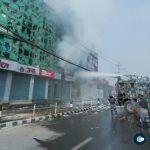
Political Instability in Nepal May cost Policy Stability
Nepal is a sovereign nation and its sovereignty depends on the strength of the government of the country to weigh its options of cooperation freely without any pressure or manipulation. However, a weak government, seeking political patronage from outside could err in taking right decisions for the people of Nepal. In the past few years, the Nepal government could not bargain development cooperation on terms that could benefit it more because the decisions the government took had a semblance of external pressure and compromise rather than economic efficiency.
There is a remarkable loss of faith and trust in the capacity and intent of the democratically elected Nepal government since the first federal election in 2017 after the promulgation of new constitution in 2015 due to incessant political bickering, opportunism and indifference to pursue effective policy measures that could create infrastructure, promote growth and socioeconomic development. The government of Nepal also failed to balance the country’s diplomacy toward two big neighbours as well as advanced countries and development partners.
Nepal has not seen any tangible progress in BRI related projects since the Belt and Road Initiative Framework Agreement was signed with China in 2017. A few months ago, the government of Nepal had warned the Chinese contract firm, China State Construction Limited over the delays in widening the Narayanghat Butwal road and necessary repair. In fact most of the China assisted infrastructure projects have become a matter of concern. All these issues were discussed in the 15th meeting of the Bilateral Diplomatic Consultation Mechanism recently in Beijing.
The last election results clearly indicated mass alienation with the whole political system and process in Nepal with only 61.4% of the registered voters casting their vote vis-à-vis 67.6% in the previous election. The reasons are not far to seek. The whole political class is seen as opportunist and bereft of principles as seen in the formation of unlikely coalitions.
Besides, the left parties have a skewed preference in choosing development partners for reasons well known. The Nepal government appears to have ignored long-term implications for short-term gains from China. The credibility of China’s telecom companies, equipment and systems has gone down.
In November 2022, the US government banned the sale and import of new communications equipment from five Chinese companies, including Huawei and ZTE amid concerns over national security. The US ban order highlighted that China made telecommunication equipment and video surveillance systems pose “unacceptable risk” in national security. Other companies which were banned included Dahua, Hikvision and Hytera. Chinese Huawei has been criticized for causing threats to cyber security, stealing intellectual property and violating human rights, especially collecting personal data and breaching privacy. Countries like Australia have also banned ZTE and Huawei, while European countries are preferring to tighten network security regulations rather than out-rightly banning Chinese tech companies.
But even then, they have not ruled out suspicion.If a government is not strong, it could not bargain the best deal for its people. For example, in the agreement with Nepal for communication system (Phase-II), China has kept the right to purchase and deliver relevant equipment and materials, install the communication system and two years’ operational and technical control. However, from a least developed country like Nepal, it has bargained tax exemptions, hassle free customs clearance and other logistic services, besides facilitating the entry and exit of Chinese technicians. China always overrides the poor countries rather than helping them without disproportionate benefits.
It is very hard to understand why China has so far not given preferential treatment to Nepal’s primary products such as tea, coffee, herbal products, cooked buffalo meat and other agricultural products despite giving it the DFQF access to more than 7000 products, many of which are not prominent in Nepal’s export basket.
On December 6, 2022, in the Opinion Column of The Himalayan Times, Jiba Pokharel wrote – “Nepali politics appears to be tottering on the precipice of instability in view of the political scenario that has emerged after the federal and provincial elections, the country has already been scarred by political instability that it went through in the pre federal eras.” The threat of political instability has not lessened even after about three months since Communist Party of Nepal (Maoist Centre) Chairman Puspha Kamal Dahal aka Prachanda was sworn in as the country’s new Prime Minister on December 25 proving his majority with the help of unlikely coalition partners, especially the bitterly rival left faction, K.P Sharma Oli led Unified Marxist-Leninist (UML) Party during the time of election.
The seeds of instability lie in the fact that none of the established parties came close to securing a majority in the November 2022 elections. Nepali congress won 89 seats, far less than 138 seats required for a majority in the 275-member House of Representatives, while Prachanda led MC could manage to win only 32 seats, while its coalition partner the Communist Party of Nepal-Unified Socialist (CPN-US) only 10 seats against the rival UML which secured 78 seats. The UML coalition comprising Rashtriya Prajatantra Party (RPP) and Janata Samajwadi Party (JSP) only 92 seats, 46 less than required majority. Many observers opine that the Nepal government today remains as unstable as it had been in all these years since first federal elections were held in 2017. They opine that Dahal became Prime Minister, not by winning popular electoral support, but via a series of manoeuvres.
At A time when Nepal is trying to consolidate its democratic process and system, it needs to remain cautious while taking policy decisions pertaining to economic development and democratic process. Overlooking the global indications regarding the Chinese companies may prove costly to Nepal and so will a skewed diplomacy in favour of the northern neighbour against other regional and global development partners. Change of government frequently or political bickering among the coalition partners would only weaken Nepal’s bargaining power in its international ties. This would also threaten policy stability which is very crucial for Nepal’s economic recovery as well as sovereignty and security.
The promises of China under the BRI have not fructified anywhere without asymmetric benefit to China, otherwise the promises have remained empty.The BRI has not taken off in Nepal as revealed by Bishnu Pukar Shreshtha, Nepali Ambassador to China, in an interview with the Kathmandu Post a month ago. He had said that Nepal had not adequately responded to Chinese inquiries on the details of BRI projects. It might be due to political stress in the country. He also added, “But I feel that China is reluctant to prioritize Nepal’s projects.” A highly divided political set would be compelled to prioritize politics over governance and development. This is why Nepal’s government is failing in pursuing well-considered economic policies without interruption.
- Newly Appointed IGP Deepak Thapa’s Decades of Experience Poised to Strengthen Nepal Police
- China to Host Russia, Iran for Nuclear Talks
- China’s Cunning Strategy and Nepal’s BRI Gamble
- Navigating Nepal’s Aviation Turbulence: The Complexities and Controversies of Pokhara, Gautam Buddha, and Nijgadh International Airports














Comments